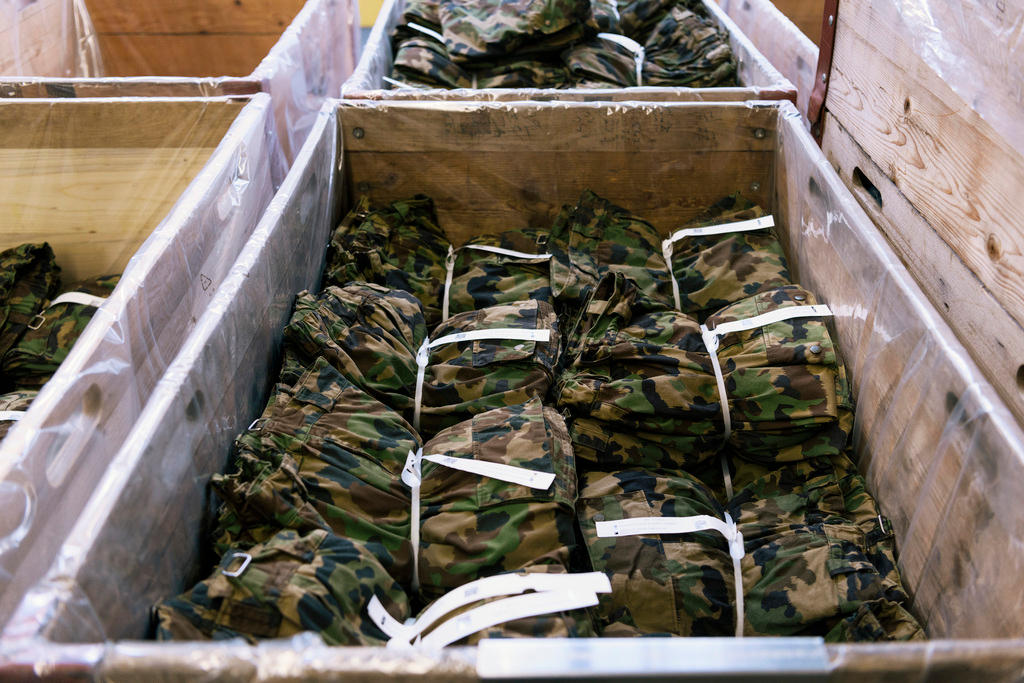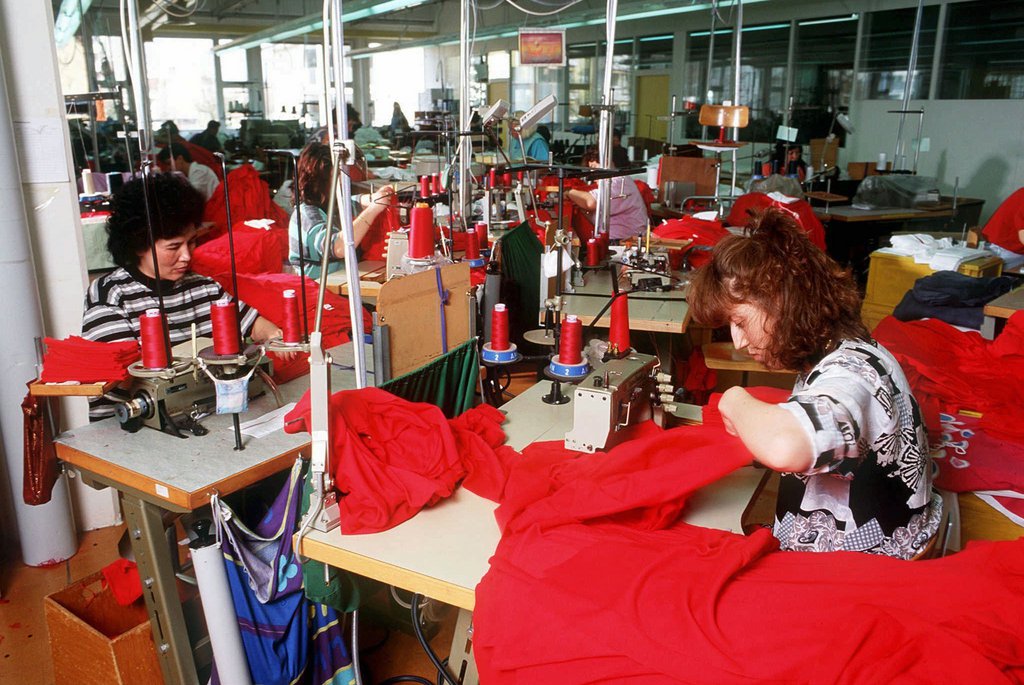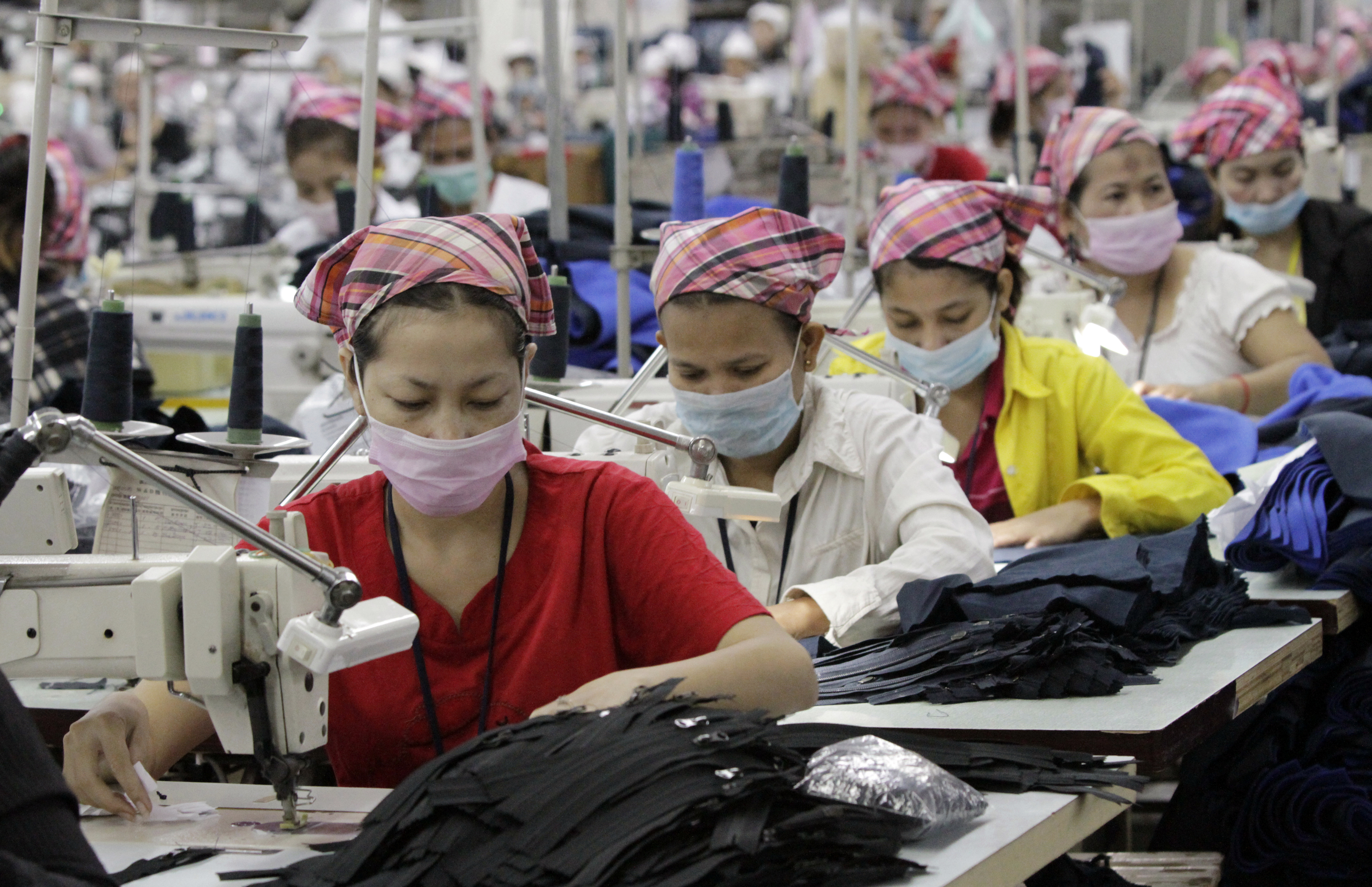Swiss low-wage outsourcing raises questions

The Swiss Army has ordered CHF3 million ($3.1 million) worth of underwear that will be made by low-wage workers in India, Bulgaria and Hungary, in a decision that raises eyebrows among human rights campaigners.
The federal defence procurement agency, armasuisse, contracted an Indian company and two Swiss companies that hire workers in Bulgaria and Hungary to fulfil the contract. The Swiss military ordered boxers, underwear and long johns for men and women, the NZZ am Sonntag newspaper reported (in German)External link on Sunday.
Kaj-Gunnar Sievert, a spokesman for armasuisse in BernExternal link, said CHF2 million of the order went to the Indian company, and CHF1 million went to the two Swiss manufacturers, after a public contracting process.
Sievert emphasised the awarding process followed “sustainable procurement” principles.
“Both the supplier and the subcontractor must comply with the local working conditions and environmental standards, and pay the state-set minimum wages,” he told the Zurich-based national newspaper.
Indian tribunal
Four years ago, a human rights tribunal in the Indian city of Bangalore sifted through allegations India’s textile industry was rife with worker abuse, threats and intolerably low wages. The allegations involved labourers who make garments for household names like Walmart, Gap and H&M.
The Asia Floor Wage Alliance organised the tribunalExternal link. In its wake, Sievert said armasuisse checked to make sure the Indian manufacturer that it contracted, Amrit Exports Pvt. Ltd.External link, met certain standards.

More
Inside the labour market
The Swiss newspaper did not identify the two contracted Swiss companies, but a spokesperson for the Indian company said it needed 280 people to fulfil its Swiss military clothes-making contract.
“This is a prestigious job, and we are proud to produce for the Swiss army,” said Krishan Agrawal of Amrit Exports.
But the legal minimum wage that those employees earn, between CHF97 and CHF128 per month, still reflect the fact that “extremely low salaries are widely used in the apparel industry”, said Christa Luginbühl of the Berne Declaration, a Swiss-based NGO that promotes human rightsExternal link.
Luginbühl, who works for the NGO’s “Clean Clothes Campaign”, said low wages and forced overtime also have been problems among clothes producers in Bulgaria and Hungary.
But the campaign also has complained that some Swiss clothing and shoe retailers still don’t pay seamstresses enough to live on.

More
Campaigners criticise lack of living textile wages

In compliance with the JTI standards
More: SWI swissinfo.ch certified by the Journalism Trust Initiative



You can find an overview of ongoing debates with our journalists here. Please join us!
If you want to start a conversation about a topic raised in this article or want to report factual errors, email us at english@swissinfo.ch.